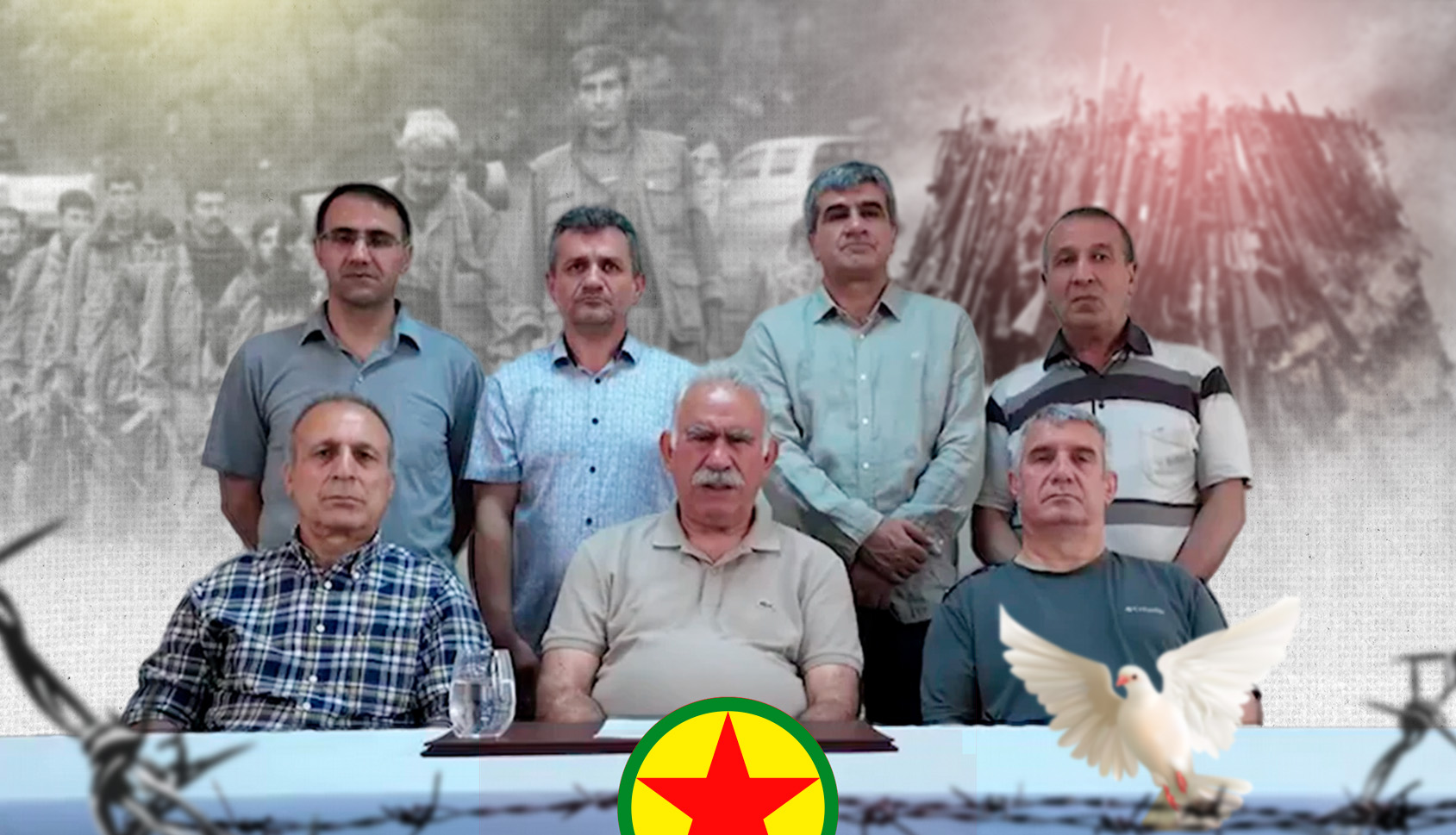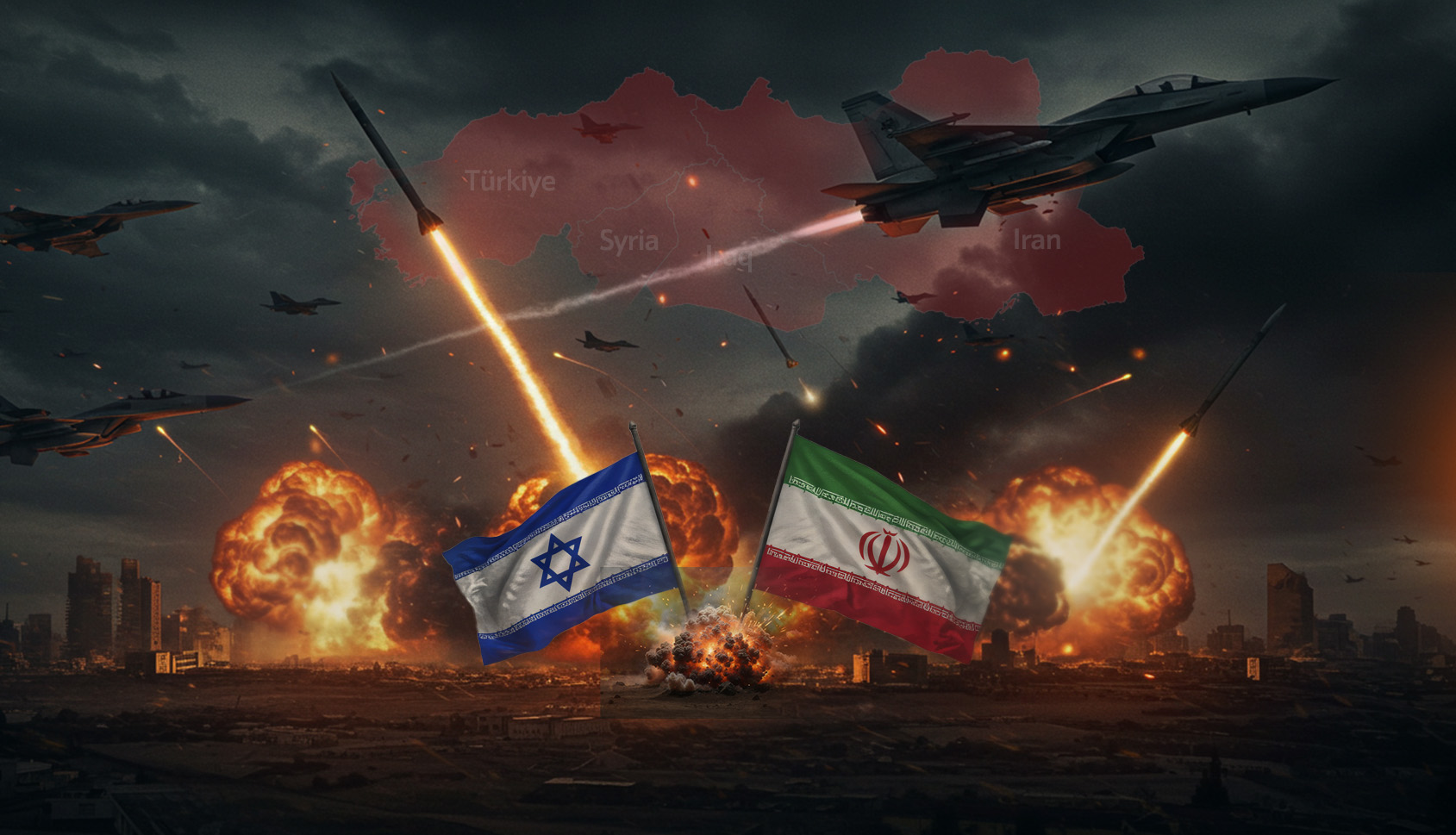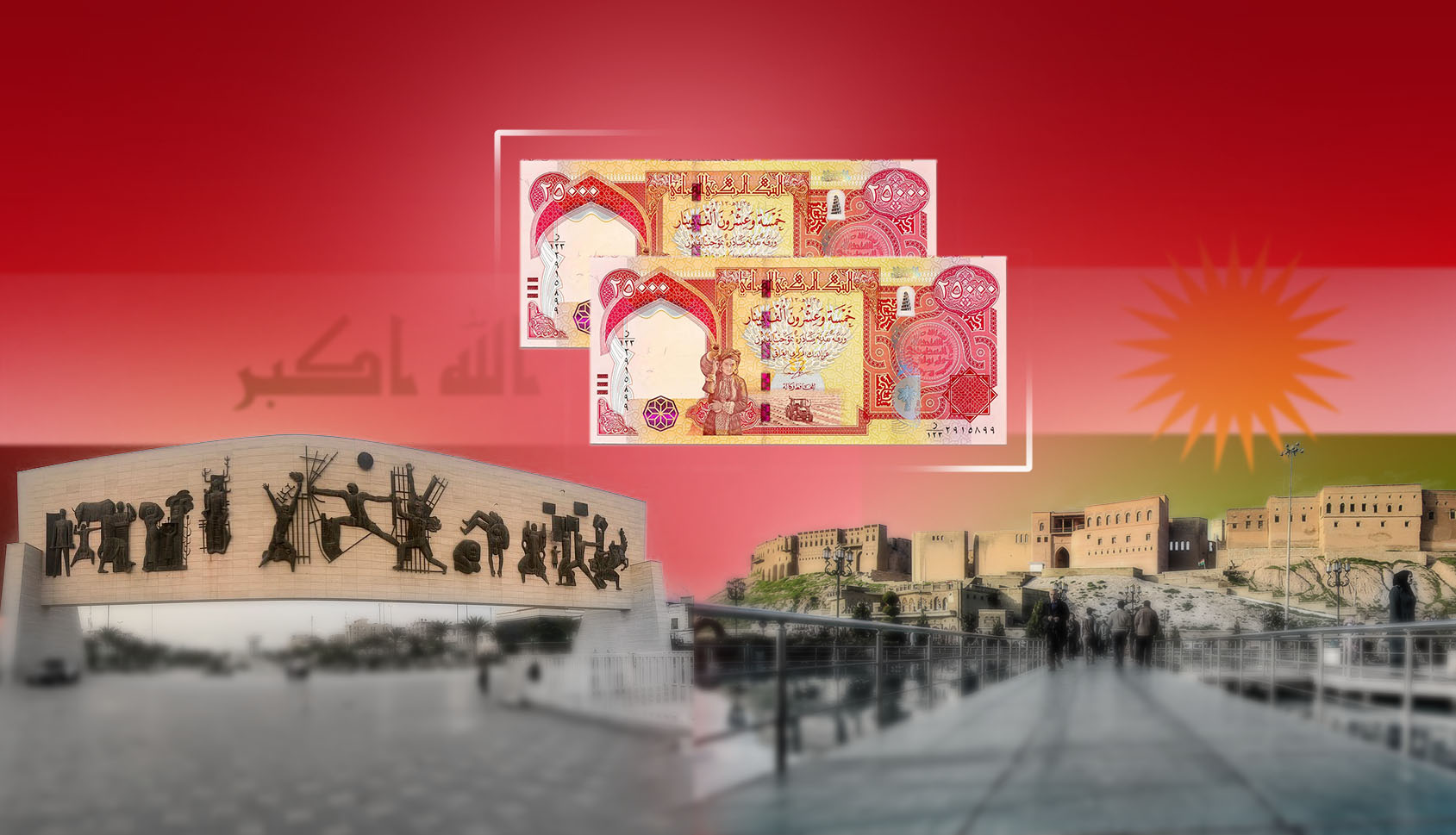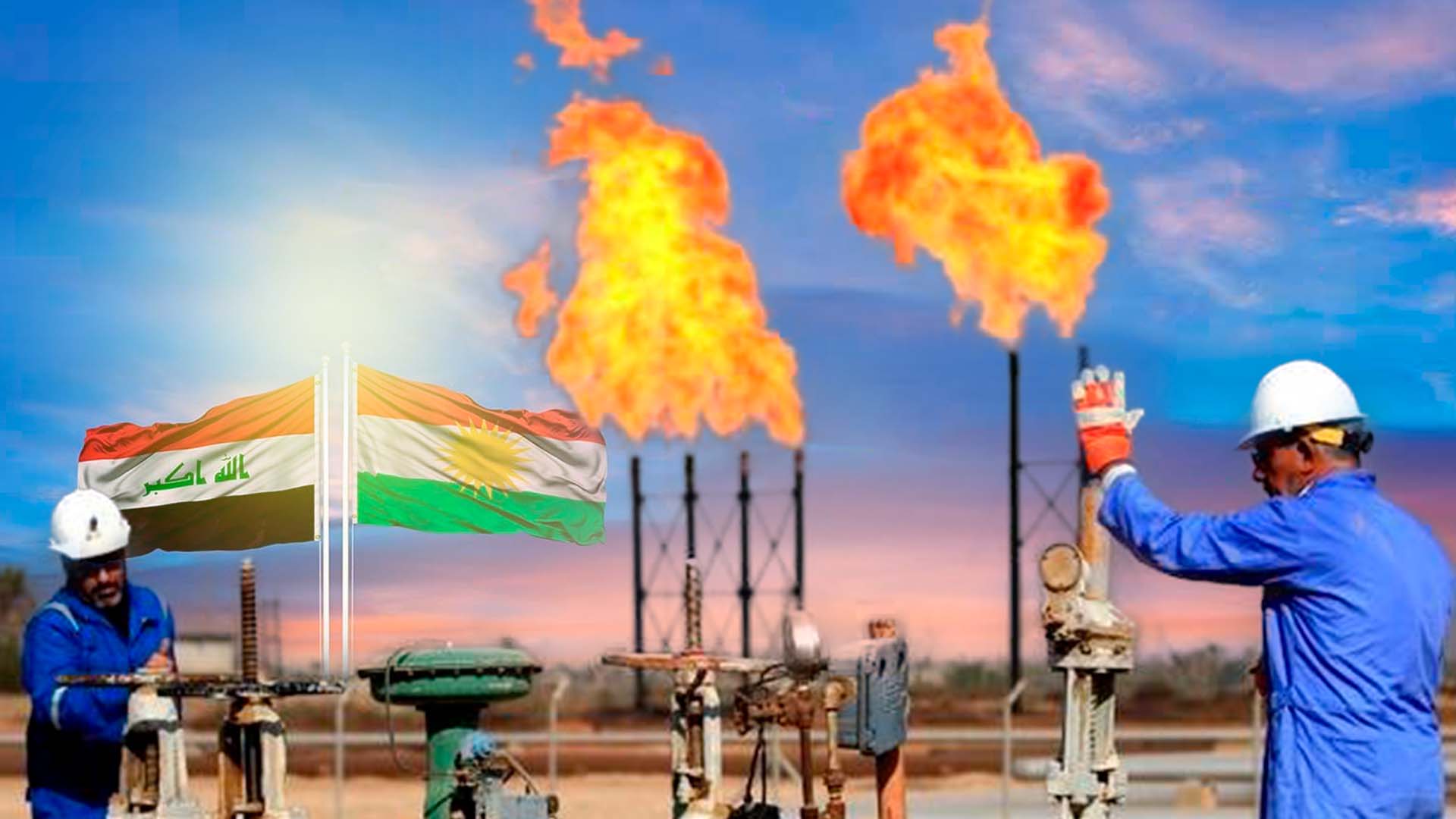RRC |
By Ziryan Rojhelati|
Introduction
In the past week, renewed military clash took place between PKK and Peshmerga forces in Chamanke sub-district in Amedi (Dohuk province) which is 35km from the borders with Turkey. Both PKK and KRG officials in their statements have expressed that are against civil war, but this did not end the Kurdish people’s fear over possibility of civil war.
In fact what happened in Chamanke is part of the political-military series of events that have taken place since last year in the north of Kurdistan region and led to escalate tensions between PKK and KRG. The events in Chamanke, Zini Warte and Sinjar agreement are all tied, and these are consequences of some factors such Turkish operation claw, geopolitical conflicts in Iraq, and the internal Kurdish rivalries.
Chamanke amid PKK and KRG concerns
Passing Peshmerga forces on the road between Chamanke and Dinarta towards Gre where PKK considered as ‘’Gurrila Zone’’ led to PKK reaction against Peshmerga forces. Gre is located in Chamanke area which located between Syan mountain in south of Gara and Bekas mountains. And then another clash in the north of Atrush between Esra and Kaniki villages another clash took place between PKK and Peshmerga. Also some days ago another clash happened in bamshmsh (in Dinarta) so this was the third armed clashes that in less than a month between PKK and Peshmerga forces.
The PKK officials considered the recent Peshmerag movements as a threat on their main bases and to encircle Gara mountain they claimed that did fight to ‘’defend’’ themselves. After series of Turkish operation claw which started since May 2019 that area (Gara) is the only important place that was not bombed much. Turkey has been attacking the border areas of Kurdistan region from Sharbazher (northeast of Suleimaniyah) Qandil until Xwakurk, Matina, Zab and Haftanin in Badinan. But Gara was less targeted and PKK was safer there.
The Erbil officials are concerned that due to PKK deployment in depth to KRI will cause more Turkish incursion. But Turkey’s ‘’operation claw’’ and its interventions in Rojava that led to taken control of Afrin, Sare Kani, Gre Spi and many other places, that has explained the difference and risks of the recent Turkish operation on Kurdistan region. Even Turkey along 200km distance from its borders in Suleimaniyah governorate has bombed civilians. Therefore establish Peshmerga points and even allow more Iraqi border patrols seen as an effort to prevent further PKK deployment and Turkish intervention.
Sovereignty and authority crisis
The PKK presence in Kurdistan region in the past years has become an important issue in the Turkish foreign policy towrads KRG. Dividing KRG’s authority and soverignty is in the interest of the some of the regional countries as dividing Kurdistan region in the past years between KDP and PUK was in their interest too. Also this is an internal issue of Kurdistan region, the PKK factor as pressure card play a role in internal Kurdish politics.
In the past three years, Turkey, Iran and Iraq have been trying to restrain the geography of Kurdish power. After referendum Iraqi army and PMF retaken most of the Kurdish areas out of KRG control. Iran established militay outposts in border areas which the last one is in Chixdara in Bradost area (northeast of Erbil). And Turkey also tried to control some of the Kurdish areas and roads of Kurdistan region.
And in between 2019-2020 Turkey through the operation claw until now ‘’has established 9 military bases from Dela mountain in Barmiza (northwest of Sidakan) until Zilkuk mountain in the mid north of Khalifan village.’’ İn the last phases of operations claw ‘’ Turkey took over 15 other places in Zaxo ,Dohuk in Bativa and Sarkar areas. Such Derashish,Awa Gize, Mnin, Ablahi, Kovi Mala Yahya, Kovi Mcholya,Gre Nze, Syare Gawrke, Eka Hali, which in some areas has crossed 30km deep into the region.’’ Iraq from the south, Turkey and Iran from north directly and indirectly restrained areas under Kurdish authority. Turkey’s crossings and its presence in Kurdistan naturally opened door for PKK to move in depth into Kurdistan region. Iraqi government or part of the government in Baghdad indirectly continued its support for PKK in Sinjar, and Iran also allowd PKK to move from Qandil to Penjwen (northeast of Suleimaniyah and border with Iran). This tell us that Turkey, Iran and Iraq have intention to push PKK move deeper into Kurdistan region to create new internal tension that replaces old PUK and KDP tension over power and soverenignty in Kurdistan region.
More PKK deployment in depth to KRI, will take other piece of KRG’s sovereignty that practically divided by KDP and PUK. Despite that PKK leader Murat Karayılan stated that they are not an alternative of KRG, but KRG considers forming ‘’guerrilla area’’ and resisting Sinjar agreement as intention and attempting to violate sovereignty and authority of Kurdistan region. The size of areas under KRG from north to Mosul relatively in length is not reaching 80 km but along these in the border areas in some places up to 30 km either there is PKK or Turkey. Is possible that one of the aims of the operation claw is to push PKK move away from the borders with Turkey and move in depth to KRI. Turkey by making this step is avoiding military threat and will engage PKK more than before with the political and military balances of Kurdistan region. PKK’s lack of opportunity to stay in the mountain areas on the border and limiting its movements in northern Kurdistan (Turkey) will push PKK move in more to KRI. Deployment large number of Peshmerga and PKK Guerrillas in limited geography which they have different ideology and policy and fight over sovereignty, this will escalate conflict and tensions.
After the operation claw, PKK deployed deeper into KRI which moved to some areas in Suleimaniyah governorate about 40-50 km distant from Qandil. And this is partly related to that PKK now play a role in making balance in the internal Kurdish politics. In the past both KDP and PUK took advantage of PKK presence to create pressure on each other and likely also at this stage PUK to make balance with KDP power benefit from PKK. In some parts of Dohuk province such Mangishke sub-district which is 20km distant from Dohuk, PKK about 30-35 km moved away from the borders. PKK think has right to move to anywhere in Kurdistan region and does not consult with anyone.
Therefore when we look at the presence of PKK in Sinjar and its more movements around KRI, then we can better understanding of Erbil’s concerns over PKK that encircled KRI.
Where is Sinjar agreement amid the tensions?
Following the Kurdish referendum, the Erbil-Baghdad agreement on Sinjar considered as most important one between the two as Baghdad agreed to manage the town jointly with KRG. Several countries such Egypt, US, and some EU members welcomed the agreement, but in Iraq a group of Iraqi MPs from the al- Fatih Alliance, State of law Asaib ahl al-Haq are openly against the deal. Iraqi Prime Minister Mustafa al-Kadhimi has stated that some groups are unhappy with the agreement. The Pro-Iranian state media considers the Sinjar agreement as an effort to disconnect ‘’ axis of resistance’’ and others called as Kadhimi’s treat with Kurdistan region in order to get their support to stay in power. In fact the agreement Kadhimi made over Sinjar is the same ‘’joint administration’’ proposal that former PM Haider al-Abadi made for the disputed areas back in 2017. If the agreement carry through then except the local police, intelligence and national security agency there should not be any other force there. And this is the point that makes PMF unhappy where they built their presence there since 2017. Shia militia’s main concern of this deal is to disconnect them with the borders with Syria especially since PM has been trying to control the borders, the Sinjar corridor to Syria has become more important for the Shia militias. Also if the deal worked out then this can become a model of other Sunni-Kurdish areas in Iraq that PMF have presence, therefore they do not want this deal to be succeed.
In general the Sinjar agreement is not against the Kurds and Kurdistan region. On the contrary this can become a model for Kurdistani areas out of KRG rule. After referendum events this at least is best possible solution to return back role of the Kurds in those areas. PKK is considering the Sinjar agreement as the US, KDP and AKP agenda against them and PKK think that Iraq and KDP want to dominate in Sinjar. According to PKK leader Cemîl Bayik ’’ Turkey, Iraq and KDP want to propose similar deal for Makhmur as well.’’ and he stated that KDP and Turkey are willing to attack any place like Sinjar that have their supporters. In the recent years due to developments in Rojava, Sinjar has become a strategic location for PKK, therefore is against any Erbil-Baghdad deal that will damage their position there. If PKK understanding of Peshmerga deployment is ‘’encircling Guerrilla area’’ then is likely tensions will escalate more.
Conclusion
The Chamanke, Sinjar agreement and Zini Warte are all linked. There is regional intention to limit the geography of Kurdish power and gather Kurdish rivals in a small location. Whether intentional or not this will make the Kurds stay away from their key issues , and due to different ideology, their struggle over sovereignty will lead them to conflict and civil war. To prevent further tension and war, Kurdistan region in collaboration with Iraq should find a solution to PKK presence in Kurdistan region. Because solving this as internal Kurdish issue will be temporary and will give excuses to Turkey to carry its incursions and such responsibility is difficult for Kurdistan region. So if there is a chance the Kurdish-Iraqi and International solution is the best and for this we should calculate the growing role of UN in the recent events of Iraq.
And is better to avoid the issue of PKK presence in KRI from internal political tensions of KDP and PUK, dialogue and multilateral meetings between Kurdish parties is needed to solve their issues which the Kurdistan region presidency can play an active role.






